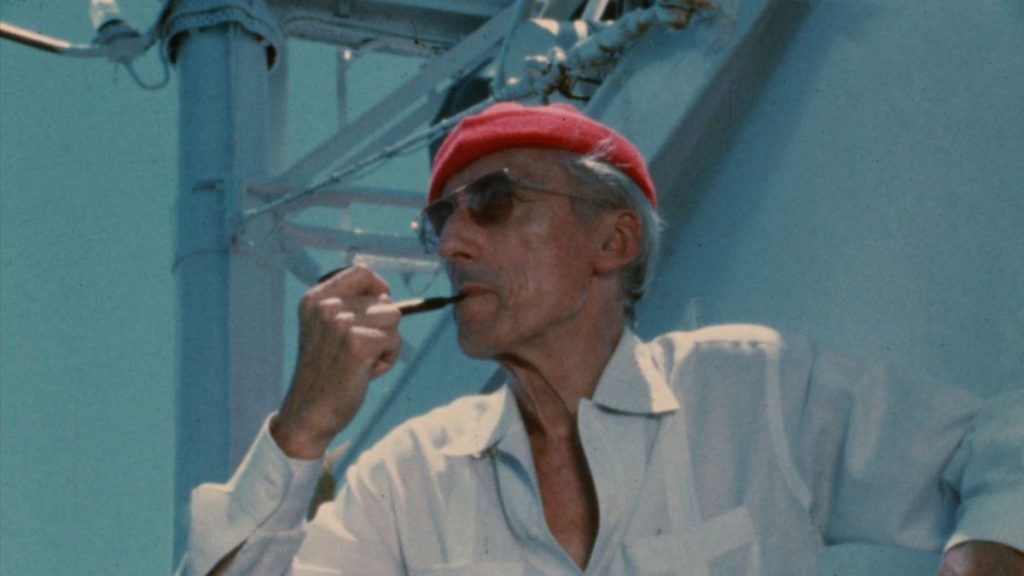
The educational if not scintillating biodoc Becoming Cousteau traces the world-changing career of Jacques-Yves Cousteau.
This was an important man. Before Cousteau, we looked at the oceans the way that humans had regarded them for centuries – based on what was on their surface and at their edges. The vastness of the oceans gave them a mask of invulnerability.
Becoming Cousteau tells how Cousteau, a pilot recovering from a motoring accident, became one of one three free divers in France before WWII, and how he was involved with or responsible himself for the invention of the aqualung, undersea stations, the underwater movie camera and his scientific ship Calypso.
Fortunately, Cousteau’s second passion was cinema, which allowed him to reveal the undersea world to the general public. He strongly preferred to call his work adventure film instead of documentary. (The cinematographer for Cousteau’s breakthrough 1956 film was Louis Malle, only two years before Malle’s own breakthrough masterpiece Elevator to the Gallows.)
That allowed Cousteau to become the great popularizer of ocean science through his ABC series The Undersea World of Jacques Cousteau.
Becoming Cousteau shows us how, at first, Cousteau had the explorer’s outlook of conquering the elements – but evolved into an ecologist. Cousteau canoodled with the oil industry in the 1950s, which he regretted in the 1970s. The preservation of Antarctica may be his enduring legacy.
Becoming Cousteau is dotted with some revealing tidbits such as how his first wife Simone was in love with Calypso and lived there, while Cousteau was on the road and their sons were in boarding school.
I am usually entranced by documentaries as superbly sourced and revelation-filled as Becoming Cousteau, but I found it a bit of a yawner. Twice Oscar-nominated director Liz Garbus packs a lot into 94 minutes, but it seems longer. Vincent Cassel voices Cousteau’s written words.
